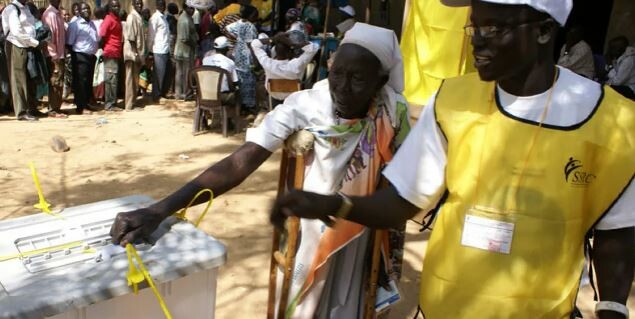South Sudanese worldwide are united in recognizing the urgent need for a significant democratic overhaul to achieve their aspirations for a cohesive, tranquil, and prosperous nation.
Since attaining independence in 2011, South Sudan has faced profound challenges, including the disintegration of its revered liberation party, prolonged warfare, persistent intercommunal conflicts, rising crime rates, widespread corruption, economic downturn, governmental instability, and a fragile judicial system.
The failure to fully implement crucial provisions of the latest peace agreement has raised doubts about the feasibility of conducting credible elections later this year.
The current discourse surrounding the impending elections underscores South Sudan’s lack of preparedness for such a crucial democratic exercise. While some advocate for an extension of the transition period to address underlying issues, others, like the SPLM IG, push for immediate elections.
However, the proposal by the SPLM Party in Government (IG) to prioritize presidential and gubernatorial elections fails to address the fundamental need for grassroots democratic reforms. South Sudan’s path to genuine representation and inclusivity necessitates starting from the local level.
A phased approach, commencing with local council elections, followed by state parliament and governor elections, then national parliament and council of states elections, leading up to presidential elections, offers a more sustainable and inclusive trajectory for democratic progress.
Furthermore, honoring the recommendations of the national dialogue, incumbent leaders such as President Salva Kiir and First Vice President Riek Macher should abstain from participating in elections to pave the way for a truly democratic transition.
South Sudan’s vibrant youth population possesses the potential for leadership roles, underscoring the imperative for leaders who prioritize national interests over personal agendas.
In conclusion, South Sudan must embark on a comprehensive bottom-up democratic transformation to break free from the shackles of patronage systems that have perpetuated its suffering.
The author is a concerned and non-party allied South Sudanese living in Australia and can be reached at slombe@gmail.com
The views expressed in ‘opinion’ articles published by Radio Tamazuj are solely those of the writer. The veracity of any claims made is the responsibility of the author, not Radio Tamazuj.




